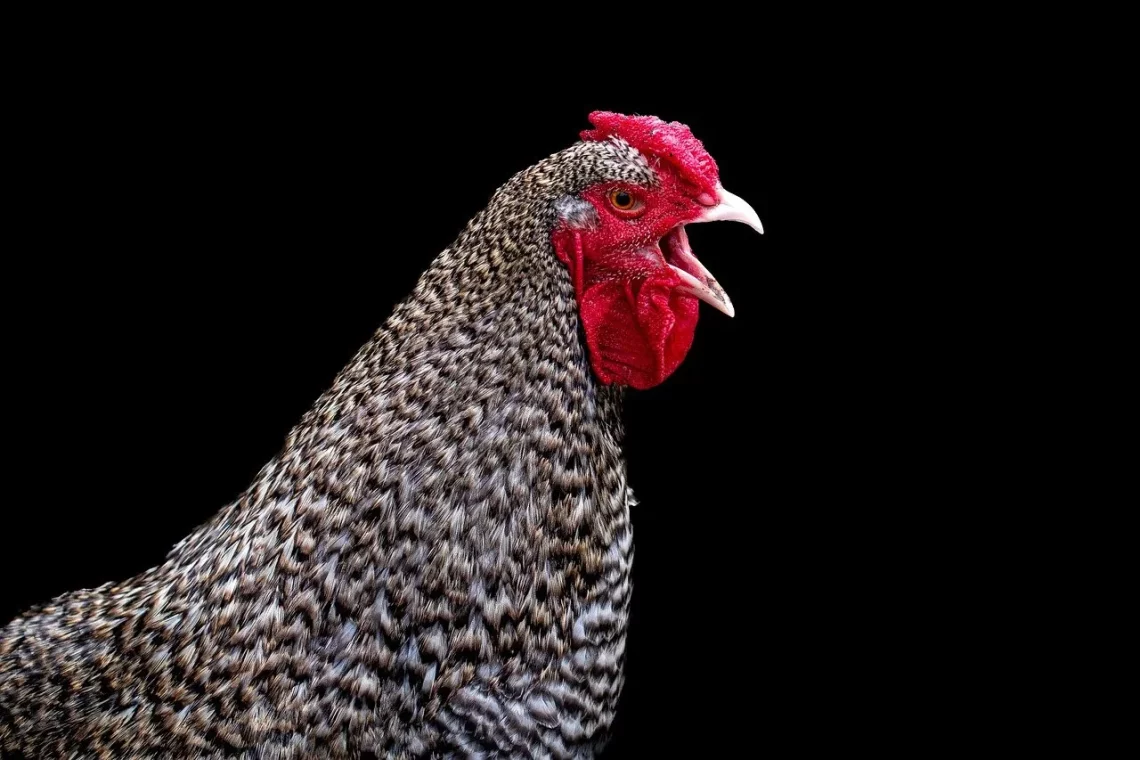-
Essential Calcium Supplements for Healthy Chickens and Strong Eggs
Calcium plays a crucial role in the overall health of chickens, particularly in their ability to produce strong eggs. As domestic poultry, chickens require a well-balanced diet that includes essential vitamins and minerals to thrive. Among these nutrients, calcium stands out for its significant impact on bone health and eggshell quality. Chickens, especially laying hens, have a high demand for calcium due to the continuous production of eggs. Insufficient calcium levels can lead to various health issues, including weakened bones and poor egg production. Additionally, the quality of eggshells may deteriorate, resulting in fragile or broken eggs. This not only affects the profitability of poultry farming but also raises concerns…
-
The Ultimate Guide to Chicken Crop Bras for Better Poultry Care
Chickens are among the most common and beloved farm animals, providing not only eggs but also companionship and entertainment. Their well-being is paramount for both small-scale and commercial poultry keepers. Understanding the unique needs of chickens, especially regarding their anatomy and health, is crucial for every poultry caretaker. One often-overlooked aspect of chicken husbandry is the importance of proper support for the birds’ crops, particularly in specific breeds prone to crop issues. The crop is a vital part of a chicken’s digestive system, acting as a storage pouch for food before it passes into the stomach. Problems with the crop can lead to serious health issues, including impaction and sour…
-
The Role of Penicillin in Cattle Health and Disease Management
The introduction of penicillin marked a profound transformation in the field of medicine, extending its influence beyond human health to the livestock industry. As a cornerstone of antimicrobial therapy, penicillin has played a pivotal role in the management of diseases affecting cattle, significantly contributing to herd health and productivity. With its ability to combat a wide range of bacterial infections, this antibiotic has enabled farmers and veterinarians to effectively treat ailments that could otherwise lead to severe consequences for the animals and the farmers relying on them. The use of penicillin in cattle is not merely a matter of treating illness; it also encompasses broader implications for animal welfare, food…
-
Exploring the Science Behind Cloning a Cock for Breeding Purposes
Cloning has long captivated the imagination of scientists, ethicists, and the general public alike. The ability to create a genetically identical organism raises profound questions about identity, ethics, and the future of biological science. While popular culture often highlights the more sensational aspects of cloning, such as the creation of extinct species or the possibility of cloning humans, the practical applications of cloning technology are vast, particularly in agriculture and animal husbandry. One area of interest is the cloning of livestock, including roosters, for breeding purposes. This practice not only promises to enhance desirable traits in poultry but also contributes to the sustainability of farming practices. As the global population…
-
The Role of Cattle Penicillin in Livestock Health Management
The health and productivity of livestock play a crucial role in the agricultural industry, impacting both food security and economic stability. Among the various interventions used to maintain animal health, the application of antibiotics, particularly penicillin, has become a topic of significant interest. Cattle penicillin, a specific formulation used primarily for bovines, has been recognized for its effectiveness in treating a variety of bacterial infections. As livestock operations scale and intensify, the management of animal health has evolved, integrating advanced medical practices and preventive measures. The use of antibiotics, including penicillin, has provided farmers with essential tools to combat diseases that can quickly spread among livestock. However, the reliance on…
-
Understanding the Sudden Death of Chickens: Causes and Solutions
The sudden death of chickens can be a distressing experience for any poultry keeper. These seemingly robust birds can exhibit unexpected health issues that lead to their untimely demise. Understanding the underlying factors contributing to these incidents is crucial for maintaining a healthy flock and ensuring the well-being of your chickens. While the causes may vary, they often stem from a combination of environmental factors, nutritional deficiencies, and diseases that can strike swiftly, leaving owners perplexed and concerned. Poultry management requires vigilance, as chickens are susceptible to a range of health problems that can escalate quickly. The sudden loss of a bird can disrupt the harmony of a flock, leading…
-
Understanding the Cost of a Vet Farm Call: What to Expect
Understanding the Cost of a Vet Farm Call: What to Expect When it comes to caring for our beloved animals, whether they are pets or livestock, understanding the costs associated with veterinary services is essential. Veterinary care plays a critical role in maintaining the health and well-being of animals, and farm calls, where a vet visits your property to provide care, can be particularly convenient. However, many pet owners and farmers alike are left wondering about the costs involved in such services. The expense of a vet farm call can vary widely based on several factors, including location, the type of service required, and the specific veterinary practice. Understanding these…
-
Understanding SMZ for Horses: Benefits and Usage Guide
Understanding the health and well-being of horses is a crucial aspect of equine care, and one area that has garnered attention in recent years is the use of SMZ, or Sulfamethoxazole. This antibiotic has become increasingly popular among horse owners and veterinarians alike for its efficacy in treating a variety of infections. As with any medication, understanding its benefits, usage guidelines, and potential effects is essential for responsible equine management. Sulfamethoxazole, often combined with Trimethoprim, is part of a class of drugs known as sulfonamides. It works by inhibiting bacterial growth, making it a valuable tool in the equine medicine cabinet. However, its use must be guided by a thorough…






























